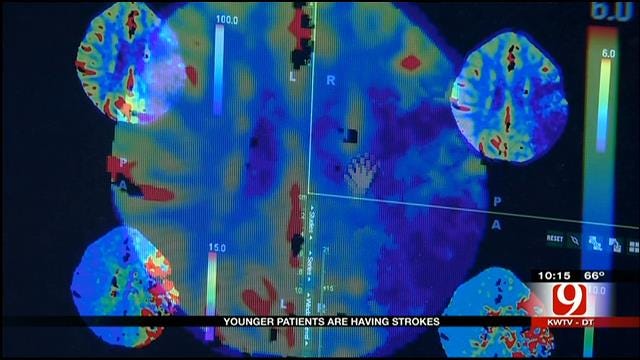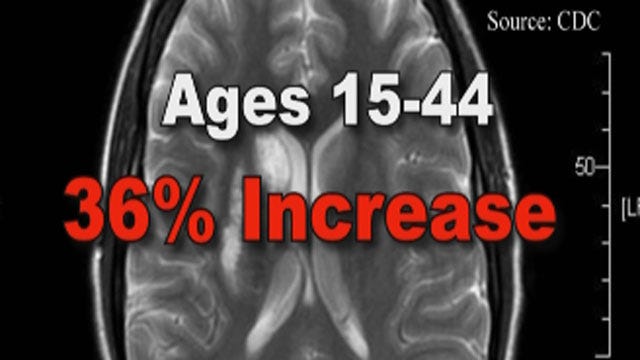Stroke Risk Increasing Among Younger Patients In Oklahoma
Every year, more than 9000 Oklahomans are hospitalized for stroke. And not just our parents and grandparents. Strokes are on the rise among teens and young adults.Monday, September 23rd 2013, 3:00 pm
It's the 5th leading cause of death in Oklahoma. Every year, more than 9000 Oklahomans are hospitalized for stroke. And not just our parents and grandparents. Strokes are on the rise among teens and young adults.
Monica Swinford remembers everything about the day in 2006. She was 34 years old, a wife and mom of a toddler. She was home with her family when she reached for a glass, but couldn't grab it.
Swinford recalled it like this, "My husband happened to come into the room and I was telling him my hand wasn't working and I thought that was strange. He said you know your face isn't working either."
Stroke Fact Sheet For Oklahoma August 2013
She was having a stroke, something this healthy young woman never expected.
"You think about it a lot. I thought about it in the ICU," Swinford said. "I thought, 'What am I doing here?' I did everything right. I exercise. I eat right."
Monica's stroke is not that unusual for women her age. A report from the Centers for Disease Control found since 1995, the number of people aged 15-44 hospitalized for stroke has jumped 36 percent.
Vascular Radiologist Dr. Vance McCollom treats stroke patients, including Monica, at Mercy. He says younger people have always suffered strokes, but a variety of reasons may make it more common today.
"Some of the medications and hormonal supplements and diet drugs can increase your risk of forming clot," Dr. McCollom said.
The CDC says the rise in stroke among younger patients is parallel with an increase in diabetes, cholesterol and tobacco use in youth and young adults. Monica had none of the risk factors. Doctors can't say exactly what caused her clot to form.
"Anytime you get a headache, feel a tingle in your hand or foot, you think, 'Am I having another stroke?'" Swinford said.
Dr. McCollom says the key is to have a plan. Recognize the warning signs and act fast.
"It's kind of like, you have a tornado coming, you go to a safe room," Dr. McCollom said. "So you have a plan of action."
Seven years later, Monica has a few minor setbacks. She said her left side is a little bit slower and she sometimes has a hard time getting her words out. But grateful she's alive.
"I thank God every day for Dr. McCollom and for the procedure they did at Mercy to, you know, fix my brain," Swinford said.
Mercy's NeuroScience Institute is the first center in Oklahoma and one of 15 hospitals in the nation to be certified as an Advanced Comprehensive Stroke Center.
Warning Signs
FAST
Face Drooping
Arm Weakness
Speech Difficulty
Time To Call 911
Risk Factors:
High Blood Pressure
High Cholesterol
Heart Disease
Diabetes
Obesity
Previous Stroke
Family History Of Stroke
Prevention:
Eat A Healthy Diet
Maintain A Healthy Weight
Be Active
Don't Smoke
Limit Alcohol Use
Drink Water
More Like This
September 23rd, 2013
March 22nd, 2024
March 14th, 2024
February 9th, 2024
Top Headlines
April 26th, 2024
April 26th, 2024












